7 Gas-Saving Tips That Actually Work
When fuel prices rise, all kinds of gas-saving schemes get floated. We separate the serious from the silly for you.
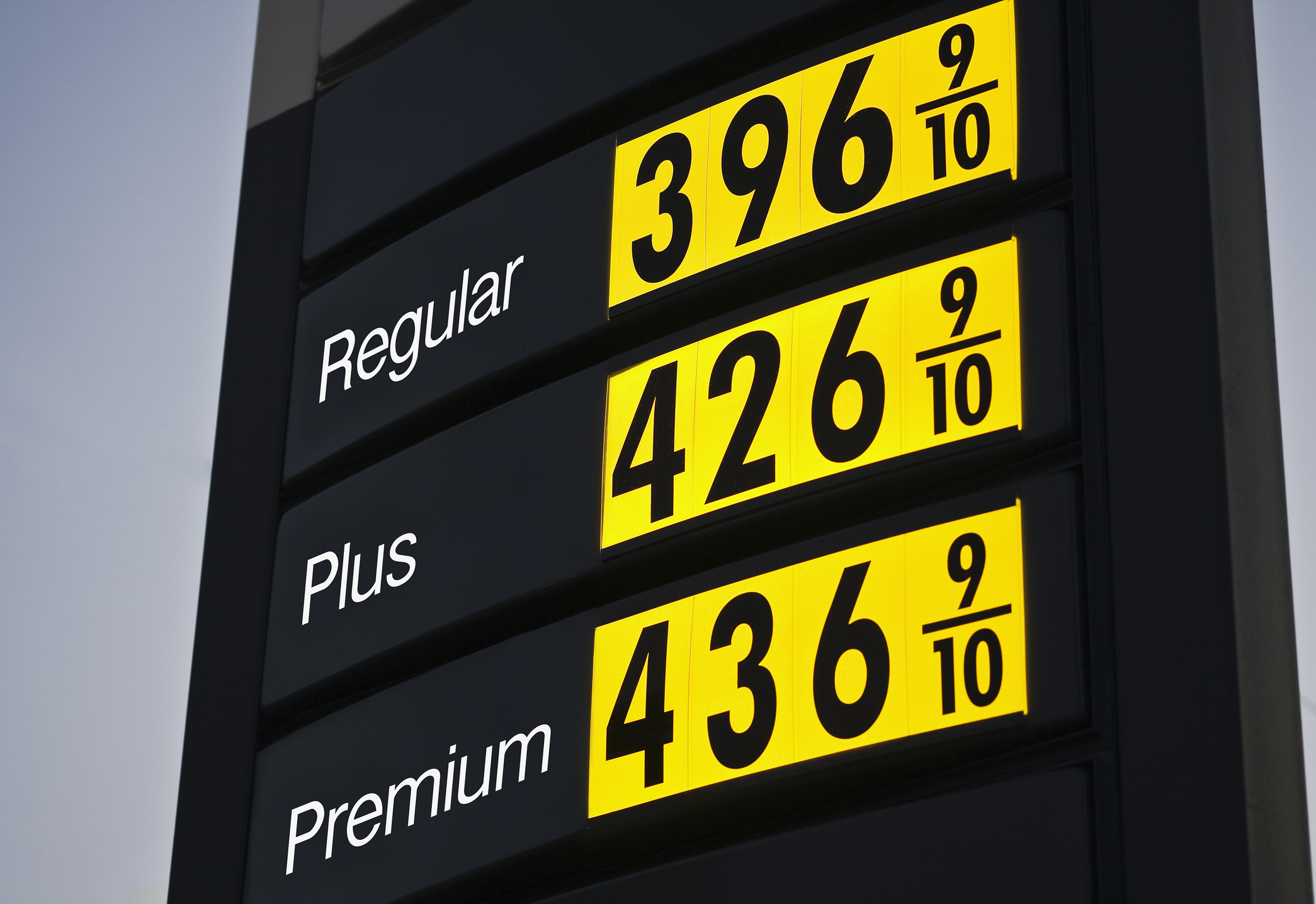

Ben Demers
Everyone's thinking about those sweet summer drives — and the not-so-sweet gas pump bills that fuel them, particularly as conflict continues in the Middle East.
Drivers have taken a hit in recent years with rough gas prices, but we may have a bit of a respite. Despite the ongoing turmoil in the Middle East, prices have stayed down, continuing a trend positive for drivers in recent years. As of late June 2025, regular gas prices nationally are $3.226 on average, down from $3.468 this time last year. That's down significantly from a peak in 2022, when prices went above $5.
But while we're getting a break at the pump, inflation has continued to make the cost of living high across the country. Car prices are rising with tariffs, as are the costs of car insurance. Because of that, it's worth taking note of ways to save on gas. If you use less fuel, you'll need to fuel up less frequently, saving you money.
So use these seven gas-saving tips to make your overall car ownership cost a smaller slice of your spending pie.
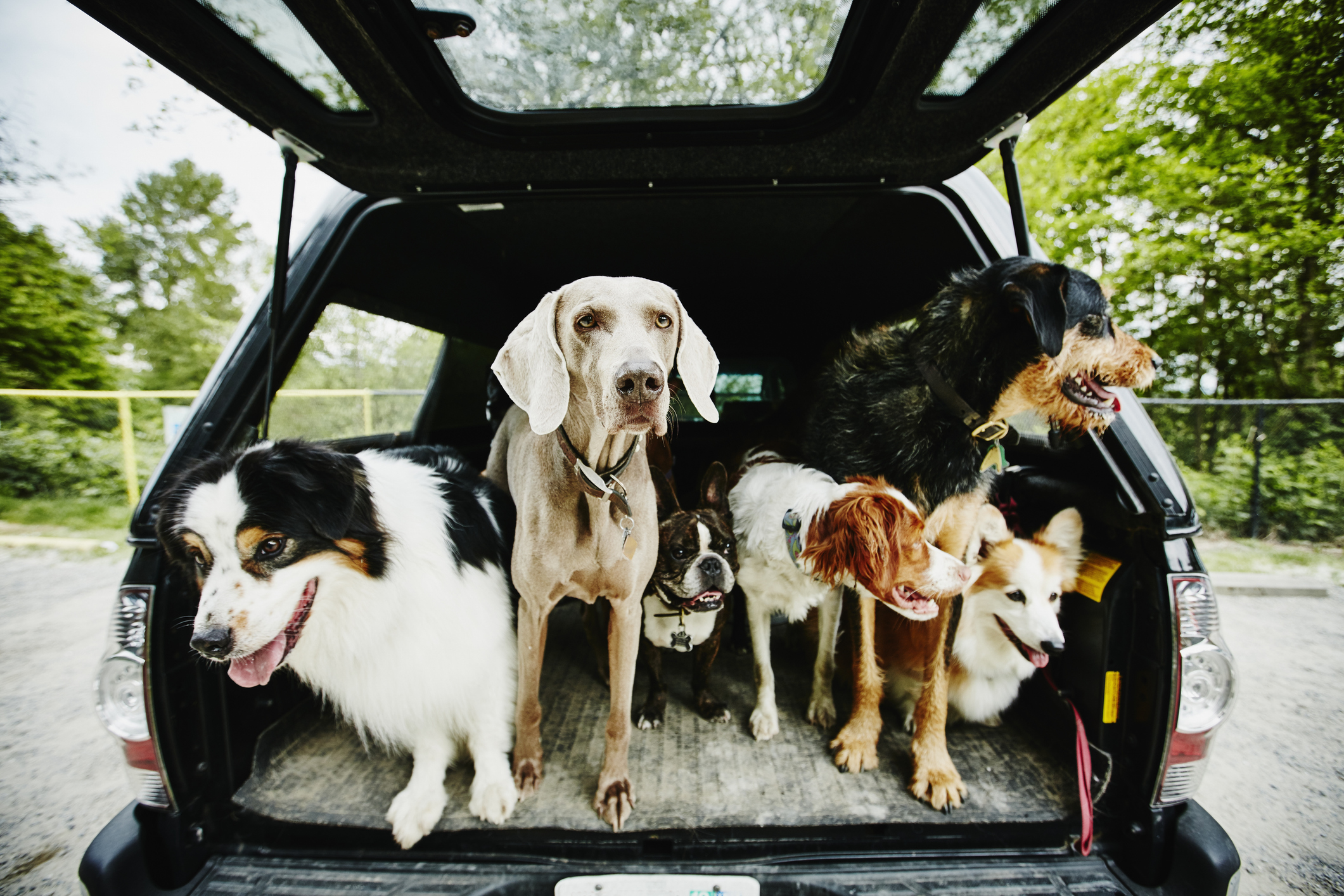
Get the junk out of the trunk
Carmakers spend a lot of engineering hours trying to reduce the weight of today's vehicles. Don't undermine their efforts — and the gas savings they represent — by leaving unnecessary items in the luggage compartment, on the back seat or in the bed.
Golf clubs are a common violator, but so is random dead weight like those boxes of books you keep meaning to donate. Or, dear lord, a case of individual water bottles for after-workout hydration.
Do you drive a vehicle with three rows of seats — and never use that third row? It's quite possible you can remove that third row and leave the seats in the garage until needed. These can weigh 30 pounds or more.
Every time you accelerate, you're using fuel to get your car, your passengers and all that junk up to speed with you. And frankly, every time you brake, you're turning that energy into heat. How much gas are you wasting by having extra weight in your car? This depends on your car, but the EPA estimates 1% in fuel mileage reduction per 100 pounds. On a per-gallon cost basis, that's about $0.03, using current EPA baseline figures.
Get your trunk in order and you'll save money, too.
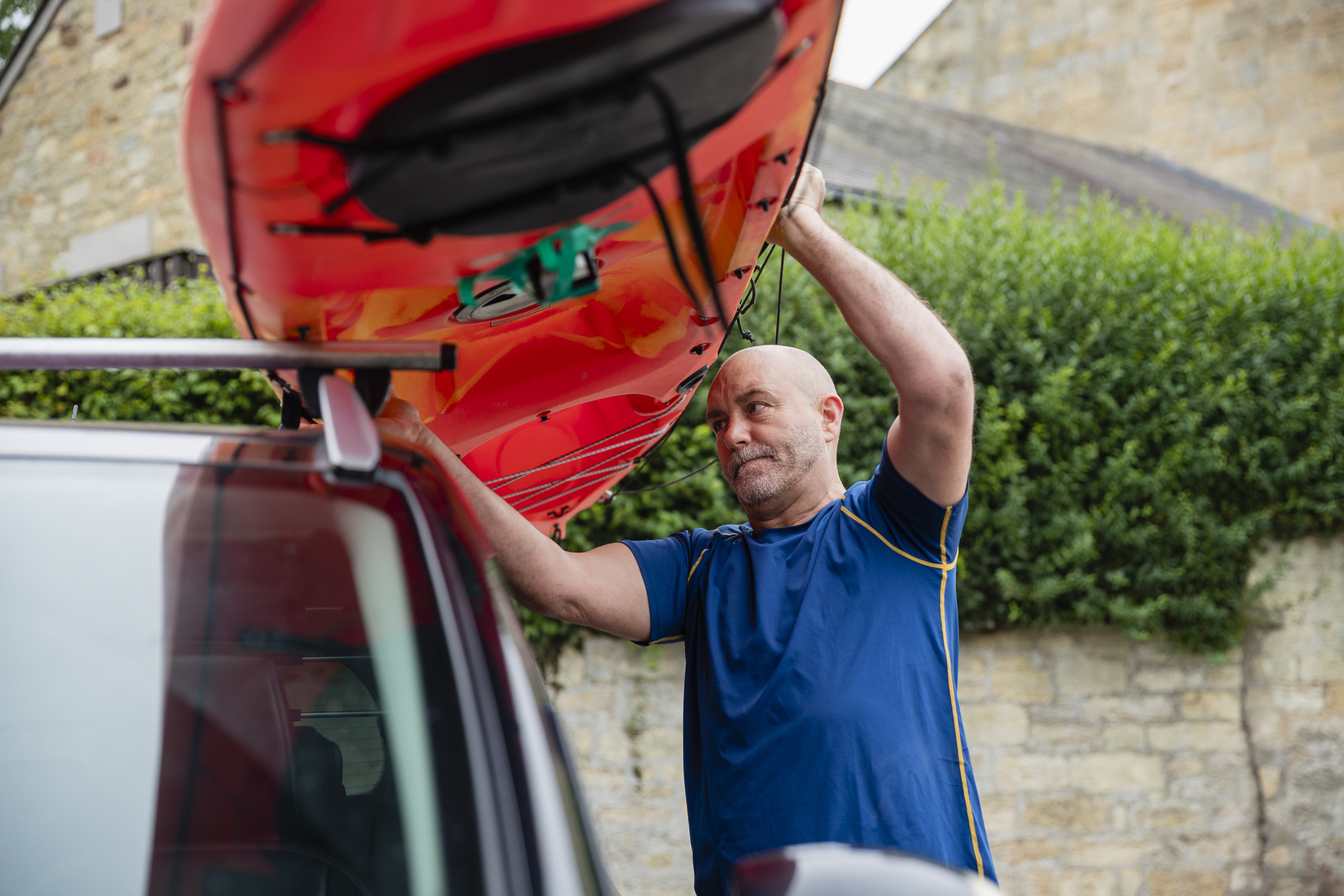
Get the rack off the roof
When they're not worrying about the weight of their designs, auto engineers fret about the aerodynamics. Improvements to how your car slips through the air matter most at high speeds, a.k.a. highway miles. The most common way drivers hurt their aerodynamics — and thus gas mileage — is by putting items on the roof.
Do you have activities (cycling, skiing, going down to the beach house) that mandate a lot of equipment? Consider whether you could use a hitch-mounted rack or box instead. Tucking the load into the slipstream of your car will save fuel.
If you must put items on the rooftop (perhaps your kayak?), remove the rack when you can. And, finally, if your vehicle came with a factory roof rack that you never use, see if you can remove the crossbars. You'll save a few pounds this way, too.
The EPA estimates that using a "large, blunt roof-top cargo box" can save fuel by up to 25% on the Interstate. This could see savings of $0.06 to $0.53 per gallon.

Combine your trips
This sounds like a nag, like being told not to use the trunk for storage. "If life weren't so crazy, I’d be doing that already!"
We know. Still, we will repeat the reasons why planning ahead can save gas:
- Grouping trips means fewer miles driven, so that's obvious.
- But even if you have to go in multiple directions, all non-electric cars use more fuel when the engine is cold. So the fewer times you need to bring the engine up to temperature, the better. Cold starts aren't good for your car (or the environment, for that matter).
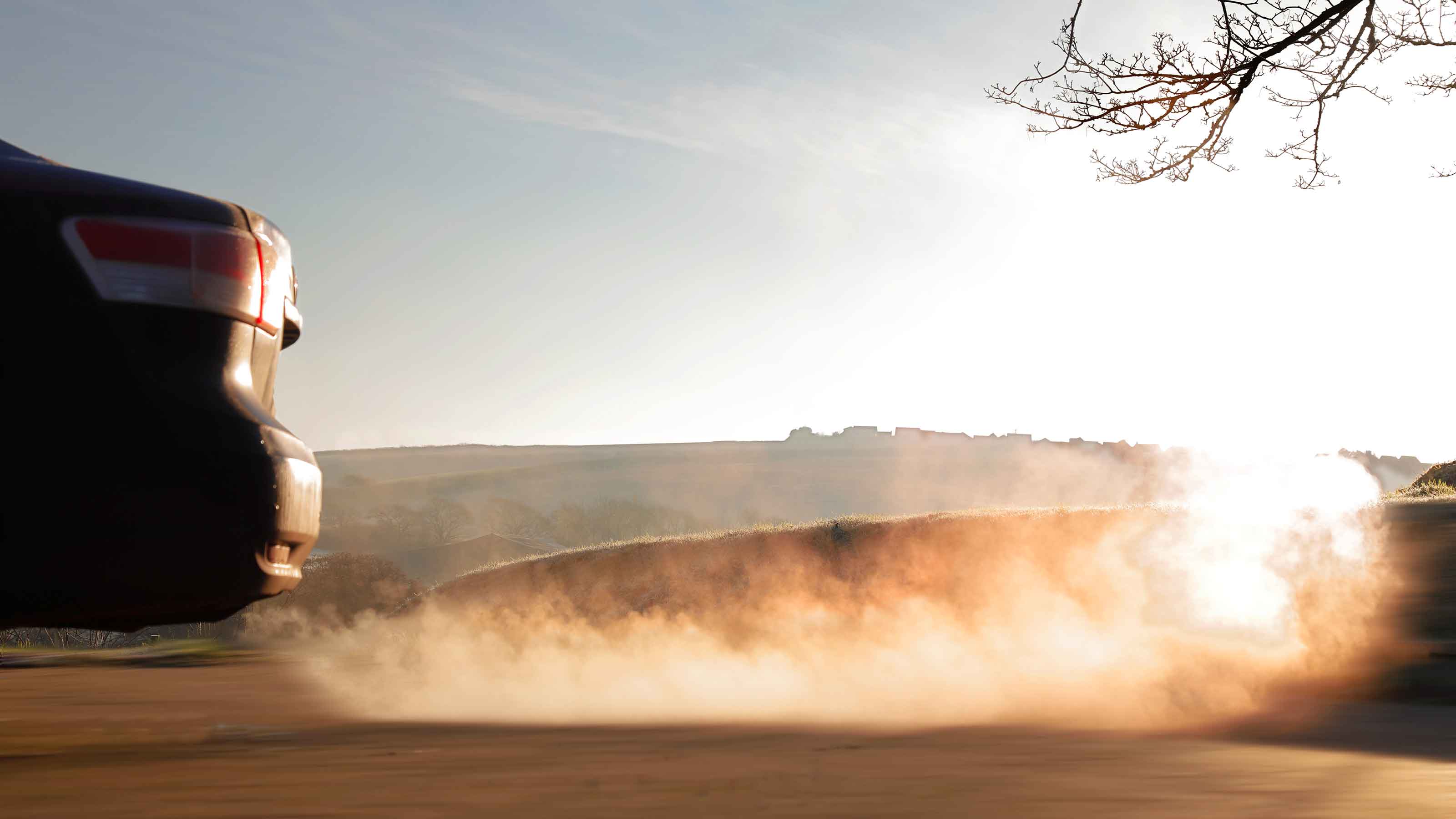
Don't let your car idle
Americans continue to wildly overestimate how much fuel it takes to start an engine versus to keep it running. The reality is, once you're stopped, your car is wasting fuel after about 7-10 seconds of idling.
That's why newer gas cars (and virtually all hybrids) have a feature that shuts the internal combustion engine off during stops when the brake is applied. The car's still "on," but the engine isn't. Push the pedal and the engine snaps back on and off you go. The feature annoys some people — and in truth the smoothness of the systems varies among vehicles — but the gas savings are real.
If you want to maximize mileage, don't disable the auto on-off feature. And everyone can stop leaving their car on while running back into the house or running a short errand. You're not running a bank job — and it's a prime way to get carjacked.

Drive slowly. Errr, wisely!
No list of gas-saving tips would be complete without the admonition to slow down. There's no getting around the fact that lower speeds require less fuel, mostly because aerodynamic resistance increases with the square of speed.
So, that's the lecture. But driving to save fuel doesn't have to be a dull crawl in the slow lane. Try thinking of it this way: Brakes turn your money into heat, so can you avoid using them?
This isn't meant to encourage dangerous behavior like not stopping for stop signs or the like. Rather, tune your anticipation skills. Look down the road farther, and coast down by lifting your foot off the accelerator when you know that traffic signal's going to change to red. You might actually find it rewarding. Bonus: You'll be a safer driver, too, which could help with those insurance costs.
While hybrid and electric vehicles are best equipped to take advantage of this approach (through regenerative braking), many conventional gas cars now engage power-sapping accessories like the alternator during coast-down to maximize fuel efficiency.
As for accelerating, if you know you're going to be holding a higher speed for a while, like when you're merging onto a highway, go ahead and push the gas as hard as you need. Not only is slow acceleration in this situation potentially dangerous, it doesn't actually save fuel.
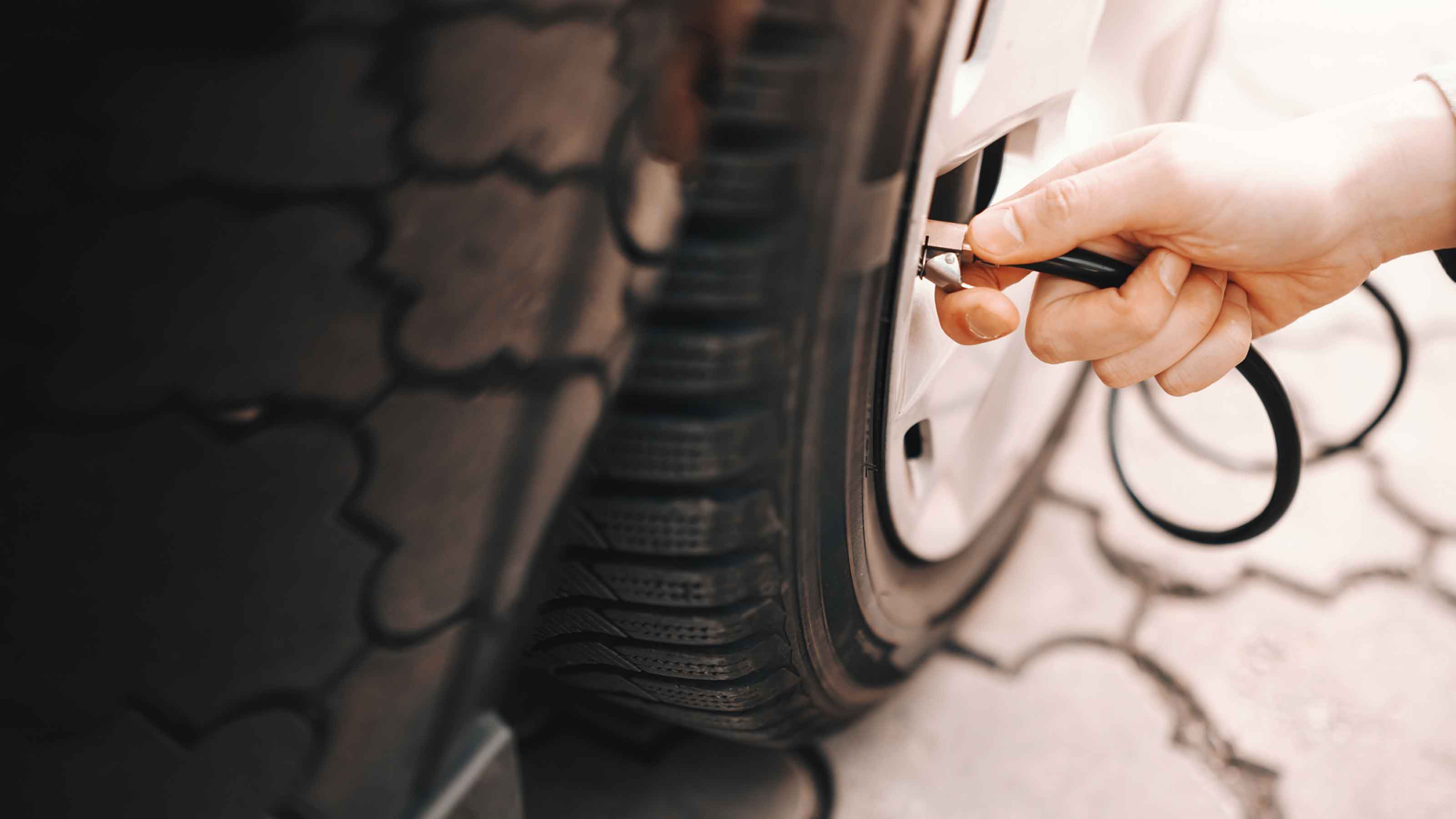
Don't rely on the tire light
All cars built since 2007 have what's called Tire Pressure Monitoring Systems (TPMS). These do what the name says: Monitor that your tires have air pressure.
The hitch is this: That light may not come on until a tire is more than 25% lower than the recommended pressure. And if you wait for that, you're potentially endangering yourself (an underinflated tire can compromise your car's handling or even lead to a tire blowout) and wasting money (underinflated tires reduce your gas mileage by roughly 0.2% per pound that they're low).
Doesn’t sound like much, but try this math: If your recommended inflation pressure is 40 psi, and you're 25% low on air, that's a 2% hit to your gas mileage. Plus, underinflated tires wear more quickly and unevenly, reducing your tire life.
There's just no substitute for buying a decent-quality tire gauge (between $5 and $15) and using it at least once a month. Even if you can figure out how to get your vehicle's TPMS to show each tire's individual pressure on your information screen, we'd still backstop this with a handheld gauge.

Embrace fuel-saving apps (and join the club)
Finding the cheapest fuel can be sport for some. But phone apps like Gas Buddy and Gas Guru make it almost too easy to find the best gas deals. Since you can use them to screen for brands, you can also make sure you're getting good quality fuel, which, in the long run, matters to the health of your car.
Joining a membership club like Costco or Sam's Club for gas savings could also pay off. Figuring how quickly you'll recoup your membership cost with the per-gallon savings on their discounted fuel is pretty easy math.
Related Content
Profit and prosper with the best of Kiplinger's advice on investing, taxes, retirement, personal finance and much more. Delivered daily. Enter your email in the box and click Sign Me Up.

In his former role as Senior Online Editor, David edited and wrote a wide range of content for Kiplinger.com. With more than 20 years of experience with Kiplinger, David worked on numerous Kiplinger publications, including The Kiplinger Letter and Kiplinger’s Personal Finance magazine. He co-hosted Your Money's Worth, Kiplinger's podcast and helped develop the Economic Forecasts feature.
- Ben DemersAudience Engagement Manager, Kiplinger.com
-
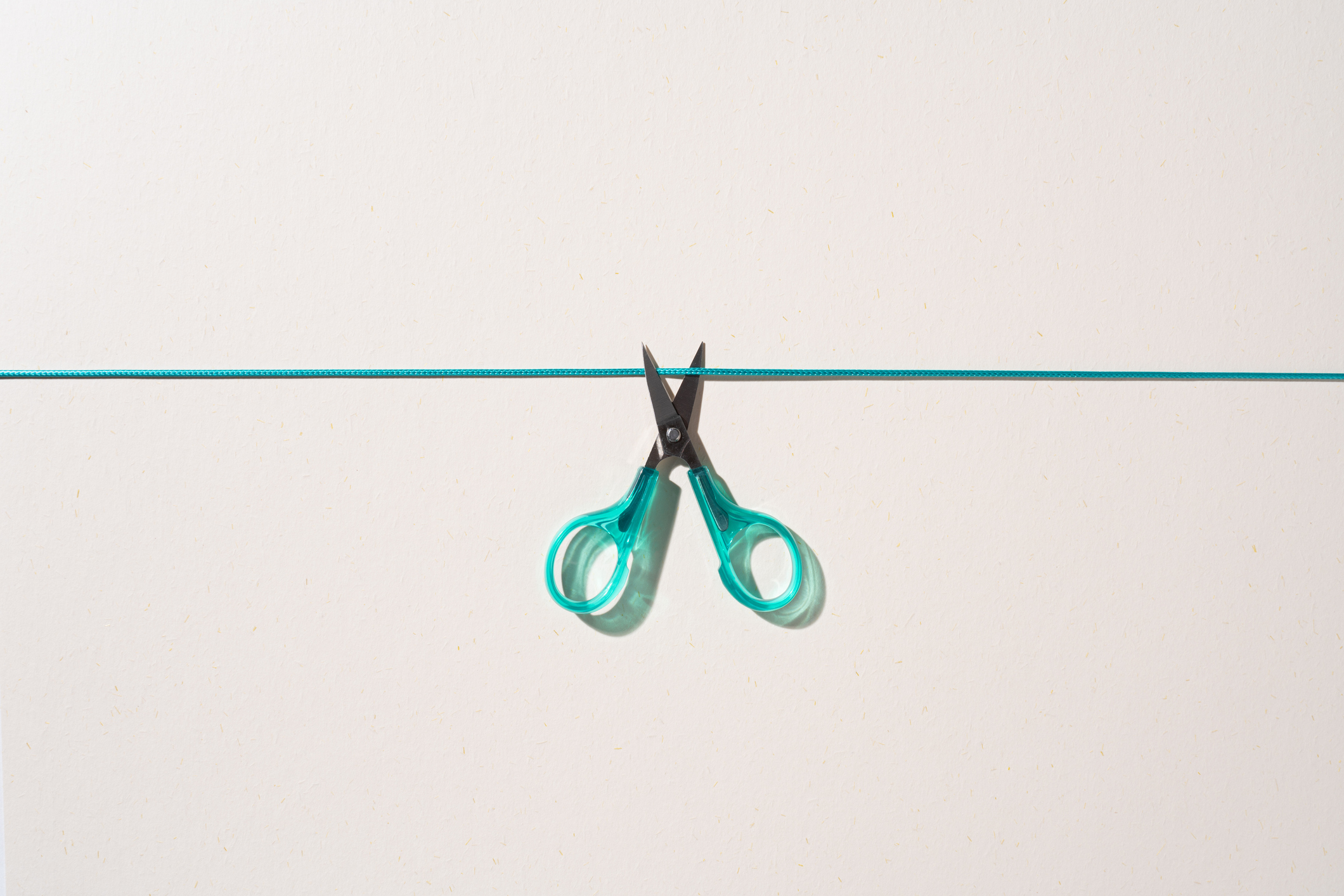 Cord Cutting Could Help You Save Over $10,000 in 10 Years
Cord Cutting Could Help You Save Over $10,000 in 10 YearsHow cutting the cord can save you money and how those savings can grow over time.
-
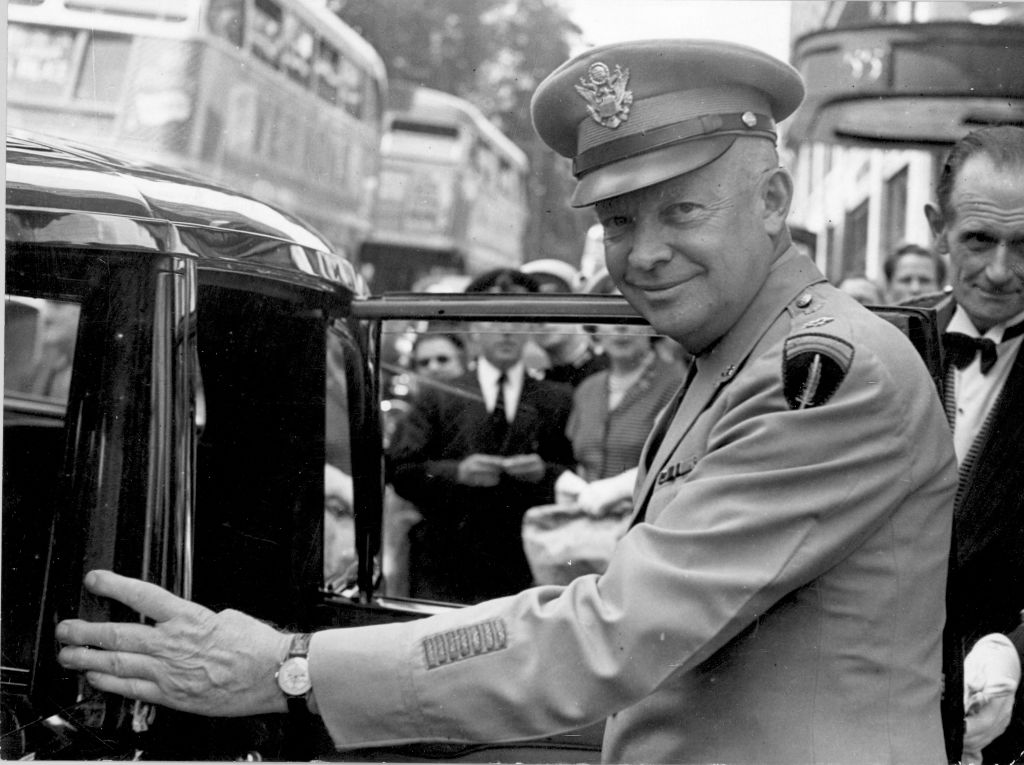 The '8-Year Rule of Social Security' — A Retirement Rule
The '8-Year Rule of Social Security' — A Retirement RuleThe '8-Year Rule of Social Security' holds that it's best to be like Ike — Eisenhower, that is. The five-star General knew a thing or two about good timing.
-
 Cord Cutting Could Help You Save Over $10,000 in 10 Years
Cord Cutting Could Help You Save Over $10,000 in 10 YearsHow cutting the cord can save you money and how those savings can grow over time.
-
 The Top Fourth of July Fireworks and Celebrations Across America
The Top Fourth of July Fireworks and Celebrations Across AmericaFrom Boston to San Diego, these iconic celebrations light up the sky — and the spirit of Independence Day.
-
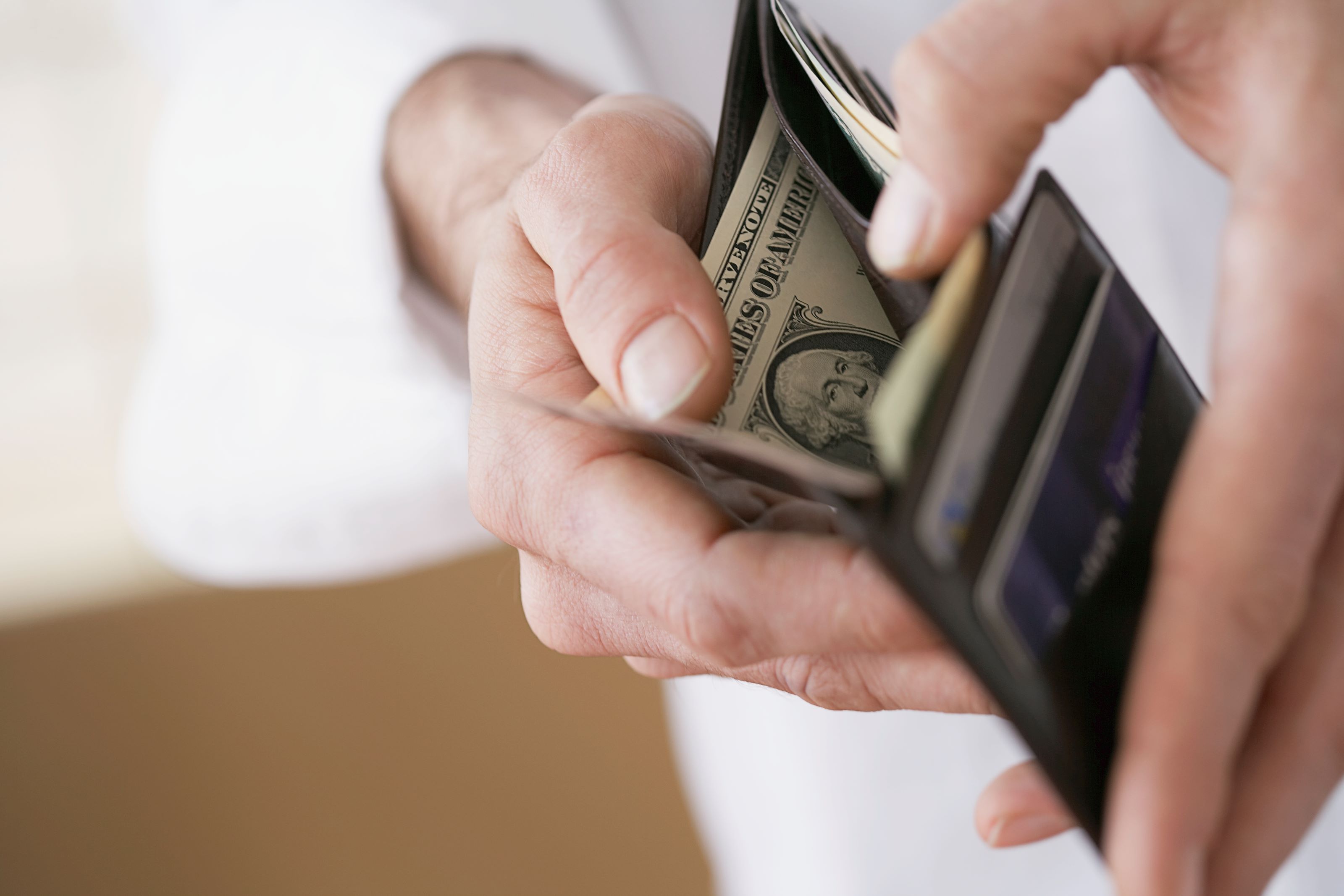 Why Retirees Need a Budget, According to a New Retiree
Why Retirees Need a Budget, According to a New RetireeA new retiree explains why retirees need a budget.
-
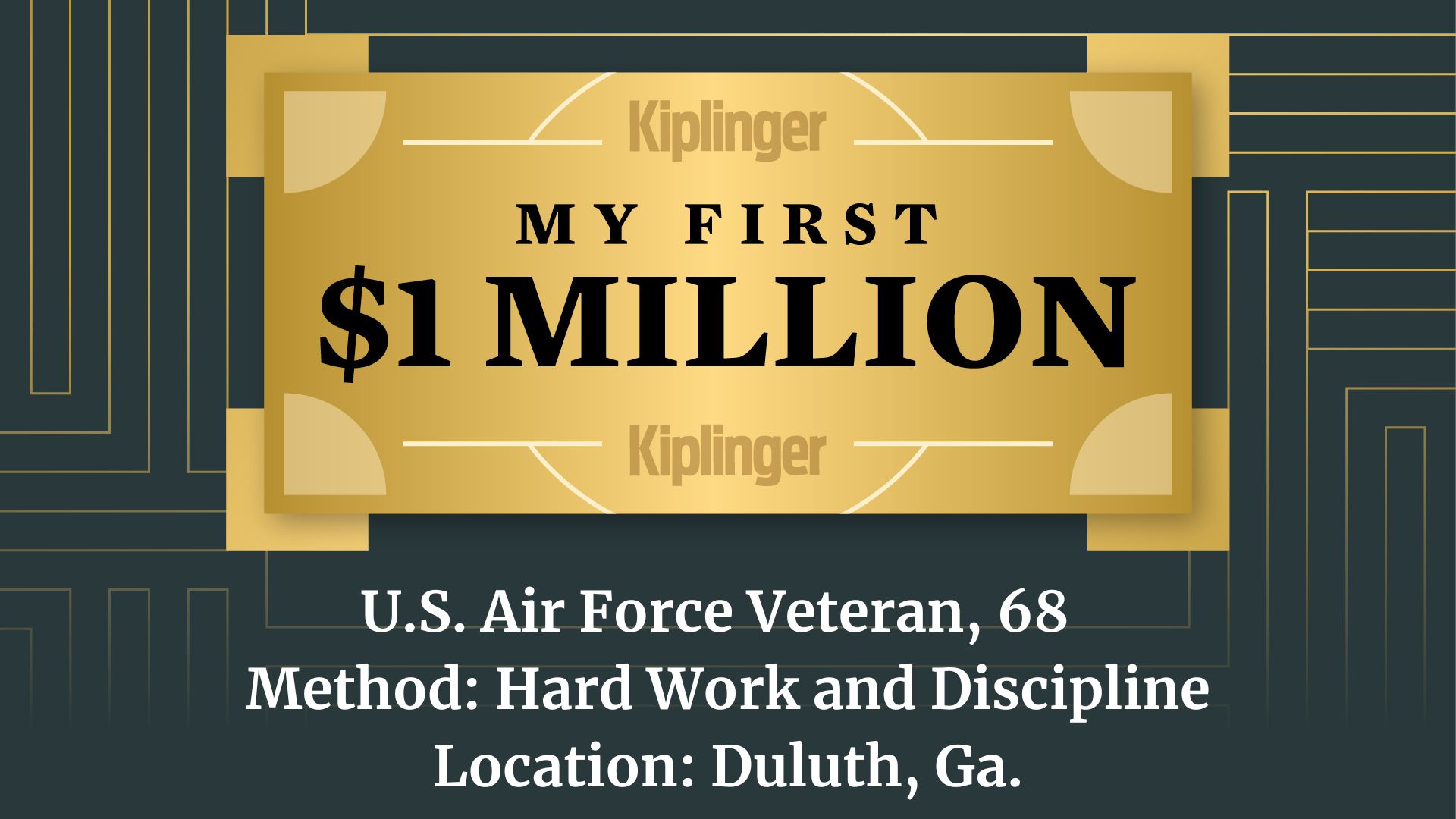 My First $1 Million: Air Force Veteran, 68, Duluth, Ga.
My First $1 Million: Air Force Veteran, 68, Duluth, Ga.Ever wonder how someone who's made a million dollars or more did it? Kiplinger's My First $1 Million series uncovers the answers.
-
 Your Home + Your IRA = Your Long-Term Care Solution
Your Home + Your IRA = Your Long-Term Care SolutionIf you're worried that long-term care costs will drain your retirement savings, consider a personalized retirement plan that could solve your problem.
-
 How to Choose a Mortgage Lender in Five Steps
How to Choose a Mortgage Lender in Five StepsNot all lenders are created equal — here’s how to compare offers, rates and terms with confidence.
-
 A Meteorite May Have Hit a Home in Georgia. Would Insurance Cover the Damage?
A Meteorite May Have Hit a Home in Georgia. Would Insurance Cover the Damage?In a rare event, a meteorite may have crashed through the roof of a Georgia homeowner. Here’s what home insurance would cover.
-
 My Car Was Stolen — Here’s What I Did and How You Can Protect Yourself
My Car Was Stolen — Here’s What I Did and How You Can Protect YourselfDon’t wait until it happens to you. Learn how to prepare for auto theft, protect your vehicle and respond quickly if your car is stolen.
